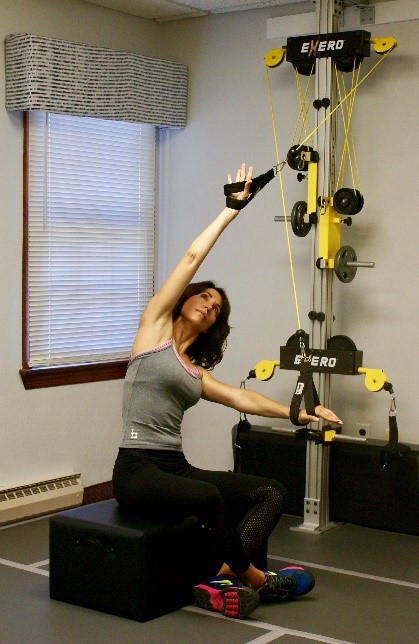The Effect of Stress on Balance
Balance is a critical component to human movement and independence. It is essential to strength train and practice balance exercises on a regular basis. We always talk about age related balance issues but stress is rarely ever mentioned as a risk factor when it comes to balance. It is imperative to visually and physically assess all clients who come to you with acute, severe, or chronic stress. In this article we would talk about age related balance issues and Psychogenic Gait Disorder which is a balance disorder caused by stress and trauma.



 Diabetes, is left uncontrolled, can cause a whole host of health complications such as vision impairment and neuropathy. It is important to adhere to any instructions your doctor has given you to keep blood sugars controlled. Your physician may also educate you on exercise, diet and stress management to keep a balanced and healthy lifestyle.
Diabetes, is left uncontrolled, can cause a whole host of health complications such as vision impairment and neuropathy. It is important to adhere to any instructions your doctor has given you to keep blood sugars controlled. Your physician may also educate you on exercise, diet and stress management to keep a balanced and healthy lifestyle. When controlling stress, you need to find out what works for you personally. Some individuals like to take a walk in the park, others choose to practice meditation or use a combination of many techniques. When you start to try new practices remember that you may have to try each a few times. The body has to get used to approaches. A qualified stress management consultant can help you to create a stress management plan specifically for you.
When controlling stress, you need to find out what works for you personally. Some individuals like to take a walk in the park, others choose to practice meditation or use a combination of many techniques. When you start to try new practices remember that you may have to try each a few times. The body has to get used to approaches. A qualified stress management consultant can help you to create a stress management plan specifically for you.



 As fitness professionals, we know that exercise helps our clients to cope with stress. We are told that any type of exercise will help them to reduce stress levels. The problem with this way of thinking is that we do not look at stress from the same point of view as a chronic illness. In turn, you could be putting your clients at risk of developing illness’s. We know that stress can wreak havoc on the body but what can we do as fitness professionals?
As fitness professionals, we know that exercise helps our clients to cope with stress. We are told that any type of exercise will help them to reduce stress levels. The problem with this way of thinking is that we do not look at stress from the same point of view as a chronic illness. In turn, you could be putting your clients at risk of developing illness’s. We know that stress can wreak havoc on the body but what can we do as fitness professionals?
 What exactly causes Multiple Sclerosis is not known but there are symptoms to look out for. The symptoms are fatigue, walking difficulties, vision problems, spasticity or stiffness, weakness, bladder problems, depression, dizziness or vertigo, emotional changes, cognitive changes, pain, headaches, tremors and breathing problems. Exercise prescriptions need to be planned according to the symptoms that are being presented. Each time you work with your trainer talk to them about how you feel that day. This will help to ensure that you don’t overdo a workout.
What exactly causes Multiple Sclerosis is not known but there are symptoms to look out for. The symptoms are fatigue, walking difficulties, vision problems, spasticity or stiffness, weakness, bladder problems, depression, dizziness or vertigo, emotional changes, cognitive changes, pain, headaches, tremors and breathing problems. Exercise prescriptions need to be planned according to the symptoms that are being presented. Each time you work with your trainer talk to them about how you feel that day. This will help to ensure that you don’t overdo a workout.

 Water exercise
Water exercise